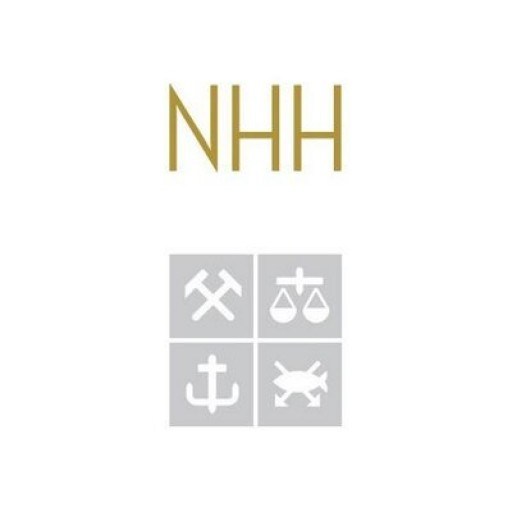Photos of university / #universityofhull
Petroleum, Oil and Gas: Chemical Engineering Technologies at the University of Hull is a comprehensive undergraduate program designed to equip students with the essential skills and knowledge required for a successful career in the oil and gas industry. This multidisciplinary course combines principles of chemical engineering, process technology, and industrial safety to prepare graduates for the complex challenges faced by the energy sector. Students will learn about the extraction, processing, and management of petroleum and natural gas resources, alongside gaining practical experience through laboratory work, internships, and industry placements.
The curriculum covers core topics such as fluid mechanics, thermodynamics, heat transfer, instrumentation, and control systems, emphasizing their application within the oil and gas context. Special modules focus on upstream, midstream, and downstream processes, giving students a holistic understanding of the entire supply chain. Additionally, the program explores environmental considerations, sustainability practices, and safety protocols vital to operating within regulated industries. Students will develop skills in process design, optimization, and problem-solving, enabling them to contribute effectively to the development and maintenance of efficient and safe processing facilities.
The University of Hull offers state-of-the-art laboratories and industry-standard equipment, providing students with hands-on experience that enhances their technical competencies. Industry placements and collaborative projects with major oil and gas companies are integral to the program, fostering real-world understanding and professional networks. Graduates will be well-prepared for technical roles such as process engineer, safety engineer, project manager, or operations technician within global energy companies, engineering consultancies, or specialty service providers.
This program also emphasizes the importance of innovation and continuous learning, encouraging students to stay abreast of technological advances and emerging trends in the energy sector. With a strong foundation in chemical engineering technologies specific to the petroleum and natural gas industries, graduates will have the versatility to adapt to diverse roles and contribute to the sustainable development of energy resources. Whether aiming to work in exploration and production, processing plants, or environmental management, students will leave equipped to meet the demands of the dynamic energy landscape.
Overall, Petroleum, Oil and Gas: Chemical Engineering Technologies at the University of Hull is designed to produce capable, industry-ready professionals committed to advancing energy solutions responsibly and efficiently. The program's blend of theoretical knowledge, practical skills, and industry exposure ensures graduates are confident and competent to excel in the global oil and gas sector.
The Bachelor of Science in Petroleum, Oil and Gas: Chemical Engineering Technologies at the University of Hull is a comprehensive program designed to equip students with the knowledge and practical skills necessary to excel in the dynamic energy sector. This course offers an in-depth understanding of the fundamental principles of chemical engineering, tailored specifically to the oil and gas industry. Throughout the program, students will explore topics such as reservoir engineering, drilling technology, process optimization, refining, and downstream processing, ensuring they are prepared for a variety of roles within this vital industry.
The curriculum blends theoretical coursework with hands-on laboratory work and industry-focused projects, providing students with real-world experience. Core modules include thermodynamics, fluid mechanics, process control, and safety management, all essential for managing complex operations in petroleum and natural gas extraction and processing. Students will also study environmental considerations and sustainable practices, reflecting the industry's shift towards greener solutions.
In addition to technical expertise, the program emphasizes developing professional skills such as teamwork, problem-solving, communication, and project management. Students benefit from close collaboration with industry partners through guest lectures, site visits, and internships, which enhance employability and provide valuable insights into current industry challenges and innovations.
State-of-the-art facilities at the university, including specialized laboratories for chemical processing and petroleum engineering simulations, ensure that students gain practical experience in a controlled environment. The course is designed to prepare graduates for careers in exploration, production, refining, and related sectors of the oil and gas industry, as well as roles in consulting, environmental management, and technological development.
Graduates of this program will be well-positioned to contribute to the future of energy production, focusing on efficiency, safety, and sustainability. They will be equipped with a strong foundation in chemical engineering principles tailored to petroleum, oil, and gas processes, making them valuable assets in a competitive global job market. The University of Hull's commitment to industry engagement and practical learning ensures that students graduate with the confidence and skills needed to succeed in this challenging and evolving field.
Admission to the Petroleum, Oil and Gas: Chemical Engineering Technologies program at the University of Hull requires applicants to possess a relevant academic background, typically including a strong GCSE profile with passes in English, Mathematics, and Science subjects. For those whose first language is not English, evidence of proficiency such as an IELTS score of at least 6.0 (with no component below 5.5) or equivalent is usually necessary. Mature students without formal qualifications may be considered based on industrial experience and prior learning.
Applicants must demonstrate a solid foundation in core scientific principles, emphasizing chemistry, physics, and mathematics, which are essential for understanding chemical engineering processes in the oil and gas sector. A secondary school diploma or equivalent qualification, such as A-Levels or BTEC Level 3 Extended Diploma in relevant subjects, is typically required. For international students, completion of high school with appropriate grades and assessments recognized internationally is also acceptable.
The program may also favor candidates with prior knowledge or experience in the oil and gas industry, chemical engineering laboratories, or related technical fields. In some cases, work experience in fields like process technology or engineering maintenance can strengthen an application.
Applicants are encouraged to submit a personal statement outlining their motivation for studying the program, any relevant work experience, and career aspirations within the petroleum and chemical engineering sectors. References from academic tutors or industry professionals may be requested to support the application.
Considering the program's technical nature, applicants should have good numeracy and problem-solving skills, with an aptitude for analytical thinking and practical laboratory work. Computer literacy, particularly familiarity with engineering software and data analysis tools, can be advantageous.
The University of Hull also values diversity and strives to induct students from various educational and professional backgrounds, provided they meet the academic and language requirements outlined. Entry requirements are subject to change, and prospective students are advised to consult the university’s official admissions pages for the most updated information before applying.
Funding for the Petroleum, Oil and Gas: Chemical Engineering Technologies program at the University of Hull is available through a variety of sources designed to support both domestic and international students. The university offers scholarships and bursaries specifically aimed at students enrolling in engineering and technology-related courses, which can significantly reduce the overall cost of tuition. For Home students, there are government-backed student loan schemes that can cover tuition fees, with repayment plans tied to income levels after graduation. International students may be eligible for a range of scholarships offered directly by the university, which are competitive and often awarded based on academic achievement and potential.
Additionally, some students choose to secure funding through external scholarships from industry partners, charitable organizations, and government grants in their home countries. The university’s careers service provides guidance and resources to help applicants identify applicable funding opportunities and prepare applications. Part-time work opportunities within the university and local area also provide valuable financial support while studying, allowing students to gain relevant experience and manage living expenses.
The university maintains good relationships with industry employers, offering sponsored research projects and work placements that can include financial support or stipends. For students planning to pursue postgraduate research or specialized training in Petroleum, Oil and Gas: Chemical Engineering Technologies, there may be funding options such as research council grants, which are highly competitive but highly beneficial.
Overall, the financial support system at the University of Hull is designed to make education more accessible and affordable, ensuring students from diverse backgrounds can undertake their studies without excessive financial burden. Prospective students are encouraged to consult the university’s official funding and scholarships webpage for the most current information and to explore all available financial aid options tailored to their circumstances, needs, and aspirations.
The BEng (Hons) Petroleum, Oil and Gas: Chemical Engineering Technologies programme at the University of Hull offers students a comprehensive education grounded in the core principles of chemical engineering with a specialized focus on the petroleum, oil, and gas industries. Designed to prepare graduates for the high-demand sectors of energy and resource extraction, the course combines theoretical knowledge with practical skills. Throughout the programme, students explore essential topics such as fluid mechanics, thermodynamics, process design, control engineering, and safety management, all tailored towards the oil and gas sector. The curriculum also emphasizes the importance of sustainability and environmental protection, reflecting current industry challenges and regulations.
Students benefit from a strong emphasis on practical laboratory work, simulations, and industry placements, providing valuable insights into real-world operations. The university fosters strong links with industry partners, facilitating work placements that enhance employability and practical understanding. The programme aims to equip students with skills necessary for roles in refinery operations, process design, project management, and health and safety within the oil and gas industry.
Throughout their studies, students develop competencies in process optimization, equipment selection, and technological innovation, preparing them to contribute effectively to energy companies, engineering consultancies, and environmental agencies. The course also covers emerging technologies such as renewable energy integrations and carbon capture, aligning with future industry trends. Graduates from this programme often progress into roles such as process engineers, operations managers, safety specialists, or technical consultants, and many go on to pursue further research or postgraduate studies. The programme’s blend of technical expertise, industry relevance, and sustainability awareness positions students for successful careers in one of the world’s most vital and evolving sectors.










